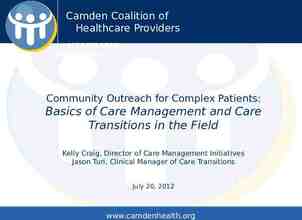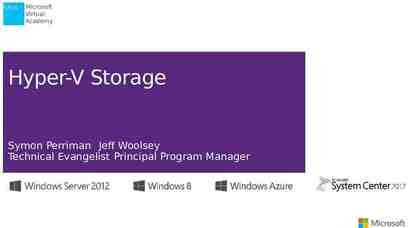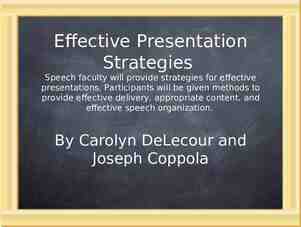LEARNING LESSONS ABOUT COMMUNITY BASED CHILD PROTECTION MECHANISMS IN
19 Slides651.50 KB

LEARNING LESSONS ABOUT COMMUNITY BASED CHILD PROTECTION MECHANISMS IN URBAN REFUGEE CONTEXTS AND THEIR LINKAGES WITH EDUCATION February -August 2013 Plot 1102 Block 8 Kabaka-Anjagala Road P.O Box 737, Kampala, Uganda Tel 256 414347022 Email:

Research LocationUganda Makindye Division (Luvuma & Lusaka Zones) Lukuli Road, targeting the Congolese refugee community Central Division in Kisenyi (Kasato zones 1 and Kasato Zone 2) targeting Somali refugee community

Research collaborators Colombia University-Child Protection in Crisis (CPC) Network Health Net Amsterdam/ TPO Uganda as the leady agency UNHCR Uganda for oversight and technical support InterAid Uganda as the implementer of the Research Activities.

Nationalities of Urban Refugees Congolese, Somalis, Eritreans, Ethiopians, Rwandans, Burundians, Sudanese, South Sudanese and other nationalities,

Source: UNHCR-Kampala, Uganda- January 2013

Number of Urban Refugees by age group, Jan 2013 45,000 40,000 35,000 30,000 25,000 Number 20,000 15,000 10,000 5,000 0 0-4 yrs 5-11yrs 12-17 yrs 18-59 yrs above 59 yrs Age group Source: UNHCR-Kampala-Uganda- January 2013

Research Processes Recruitment of Research Assistants Two weeks- from 18th February – 1st March 2013,training of Research Assistants(06 for Congolese and 04 for Somali communities) Data collection in 06 weeks (5th March – 12th April) Data transcribing from local language to English Data analysis by consultant Report writing by consultant

Methodology used Interviews (in-depth and key informants) Focus Group Discussions. Body mapping using body mapping tool Documents reviews

Outputs 265 interviews (175 in depth interviews and 39 Key Informant Interviews), 51 Focus Group Discussions- this methodology was key in identifying priority harms and functional response pathways, as it included innovative aspects of structured group exercises. In addition 38 body mappings were conducted with children aged 6-10 years.

Most harms reported Lack of education due to lack of school fees, and age due to lost school years. ( 88%) Discrimination in schools, hospitals neighborhoods, and other areas (57%) Defilement by thugs, poverty (27%) Lack of decent accommodation ( Inadequate and overcrowded houses) Early sexual activity Drug abuse

Most harms reported Child trafficking Child Neglect/ lack of child care. Child beating – stress, trauma Delinquency/street groups Early marriages and early child pregnancy Theft Child labour Accidents

Cont. harms reported Child kidnapping Incest Acculturation Insecurity No parents/ caregivers HIV infection.

Structures existing to address the harms The family Community based structures particularly church structures among the Congolese, and clan structure in Somali communities. Police Local Councils (mainly Chairman LC1) InterAid HIAS Refugee Law Project Probation office at the Division Others like child care homes

Effectiveness of these institutions Families, not effective due to poverty, and trauma and the lack of parents/ caregivers. Local Leaders very effective. Public institutions not effectivediscrimination by staff; limited by institutional challenges Unfriendly policy frameworks to facilitate efficiency in service delivery to handle mitigation procedures

Livelihood issues correlated to child harms Poor and congested accommodation of refugees Child Neglect due to parents spending all day out, trying to earn a living and leaving children home alone , unattended/unsupervised. Many children not in school due to lack of money to meet school needs like scholastic materials, shoes, uniforms, books, lunch etc. Poverty very high among the refugees.

Key issues linked to child harms Refugee children are not in school and as a result they are exposed to all forms of child harms. Being in school in the major child protection mechanism. Poor and congested accommodation leading to exposure of children to the sexual activities if their parents – in turn leading to disrespect of parents and early sexual activity of children. There is a lot of discrimination which is rampant in institutions that provide child protection services. Consequently children in need of the protection are not given the protection service. Discrimination is a human right abuse and affecting refugees in the urban.

Emerging Issues Given that this is work in progress, there are no recommendations as yet but certain issues are emerging as important; The need to review the Government policy on fees for medical examination for rape/defilement survivors. Need to sensitize refugees on child protection issues. Support to the education of refugee children

Emerging Issues Sensitize refugees on existing child protection mechanisms /institutions Sensitize host committee / LC leaders on plight of refugees. Build the capacity of the local based child protection mechanisms to handle child related issues.

THANK YOU Scholastica Nasinyama






